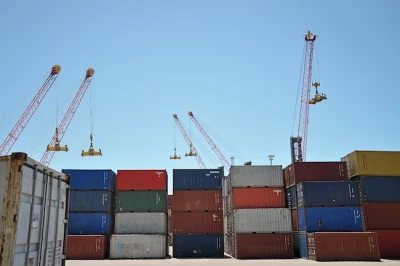Economic resilience is the capacity of industries and associated communities to anticipate, prepare, absorb, recover and learn from supply chain disruptions.
Global supply chains deliver goods and services underpinning the wellbeing of New Zealanders. They enable productivity-enhancing specialisation, production, and distribution across the globe. However, the environment that global supply chains relied on for the past three decades is challenged by the emergence of escalating geopolitical, environmental, societal, natural hazards, economic, infrastructural and health risks.
New Zealand industries and communities are materially exposed to supply chain disruptions.
New Zealand, as a small open economy relying on global exchange far from global markets is exposed to increased risk of disruptions while also having limited power to influence global supply chains.
Existing economic challenges around productivity, innovation, infrastructure under-investment, and climate adaptation compromise our ability to adapt to future disruptions.
The Commission’s Improving Economic Resilience inquiry found clear and strong connections between the challenges of building resilience, fostering innovation and raising productivity. An increasingly uncertain and volatile economic and geopolitical world reinforces the need to tackle these challenges head-on.
Proactive investment in economic resilience can reduce adverse impacts of disruptions.
The timing and magnitude of disruptions cannot be entirely predicted, but investments in generic sources of economic resilience will not only soften the blow but also hasten the recovery and adaption over time.
While resilience is about the ability to absorb impacts of disruptions and recover, economic resilience cannot rely solely on responding after a disruption. We must also be proactive in our efforts to invest beforehand in anticipation, preparation, and learning.
We can do this by:
- strengthening relationships and networks focused on resilience and innovation
- building institutions and policy settings to support more effective information sharing
- implementing more effective supply-chain management
- promoting focused innovation
- establishing effective bottom-up decision-making in times of disruption
The Commission specifically recommended the Government:
- Complement trade data analysis with industry expert insights to identify vulnerable goods, services, and markets.
- Coordinate proactive investments in economic resilience by strengthening networks between industry and government to align investment intentions.
- Lead a focused innovation policy to support firms to export high-value products at scale, enabling New Zealand businesses to diversify export markets and increase resilience towards trade shocks.
- Sharpen the focus on economic resilience in existing industry-facing growth and innovation funds.
- Develop a strategic focus on economic resilience in the longer-term by building strong institutions, effective leadership and good relationships among government bodies, industry organisations and the community.
Building a more resilient economy will allow New Zealand to be better equipped to absorb the impacts of supply chain disruptions, while supporting firms and communities better tackle cross-cutting economic challenges including productivity and innovation.
Our Improving Economic Resilience Final Report contains 31 findings and nine recommendations for the Government.
You can read the final report and overview document here:
Improving Economic Resilience – Report on a Productivity Commission inquiry (PDF)

